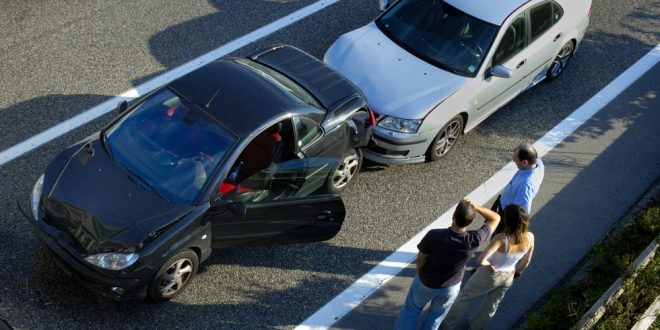 Indianapolis, IN- A law that had been on the Indiana books as a misdemeanor, and was inadvertently removed, has been reinstated as a class “C” infraction.
Indianapolis, IN- A law that had been on the Indiana books as a misdemeanor, and was inadvertently removed, has been reinstated as a class “C” infraction.
Beginning July 1st, 2016, IC 9-26-1-1.2 is added to the Indiana Code as a new section and states, “If, after an operator of a motor vehicle is involved in an accident, the operator’s motor vehicle comes to a stop in the traveled portion of the highway, the operator shall, as soon as safely possible, move the motor vehicle off the traveled portion of the highway and to a location as close to the accident as possible. However, the operator of the motor vehicle shall not move the motor vehicle if the accident involves the transportation of hazardous materials or results in the injury or death of a person or the entrapment of a person in a vehicle.” The previous law only applied to interstate highways. The reinstated law applies to all government maintained roadways.
The intent of the law is to safely remove traffic hazards from the roadway so as to reduce secondary crashes, especially on multi lane highways, that are often more severe and result in more injuries than the original crash. Also, this law ensures that motorists have statutory backing when they move their vehicles. Many times insurance companies tell their clients not to move their vehicle after it has been involved in a crash, even if it’s only a property damage crash, until law enforcement arrives.
Information from IN-Time, Indiana’s Traffic Incident Management Effort, states that for every minute that a freeway travel is blocked during a peak travel period, four minutes of travel delay results after the incident is cleared. Their statistics reveal the following:
- Crashes that result from other incidents (secondary) are estimated to be 22% of all crashes.
- Chances of a secondary crash increase by 2.8% for each minute the primary incident is not cleared.
- 18% of secondary crashes result in fatal injuries.
- In 2008, 21% of Indiana’s crashes showed vehicles “slowed or stopped” in traffic. A secondary crash.
Past records indicate neither a ticket nor arrest was issued while the law was a misdemeanor and authorities do not anticipate tickets being issued under the reinstated law, except in rare circumstances.
“Our intent is to educate the public that if they are involved in a property damage crash, they have a statutory requirement to remove their vehicles from the roadway,” stated Indiana State Police Superintendent Doug Carter. “The Indiana State Police will utilize traditional media and social media to inform the public of this reinstated law which is designed to remove hazards and keep traffic moving safely on Indiana highways.”
Included below is the reinstated statue IC- 9-26-1-1.2.
SECTION 2. IC 9-26-1-1.2 IS ADDED TO THE INDIANA CODE
AS A NEW SECTION TO READ AS FOLLOWS [EFFECTIVE JULY
1, 2016]: Sec. 1.2. (a) If, after an operator of a motor vehicle is
involved in an accident, the operator’s motor vehicle comes to a
HEA 1048 — Concur
3
stop in the traveled portion of a highway, the operator shall, as
soon as safely possible, move the motor vehicle off the traveled
portion of the highway and to a location as close to the accident as
possible. However, the operator shall not move the motor vehicle
if the accident:
(1) involves the transportation of hazardous materials; or
(2) results in injury or death of a person or the entrapment of
a person in a vehicle.
A person who violates this subsection commits a Class C infraction.






